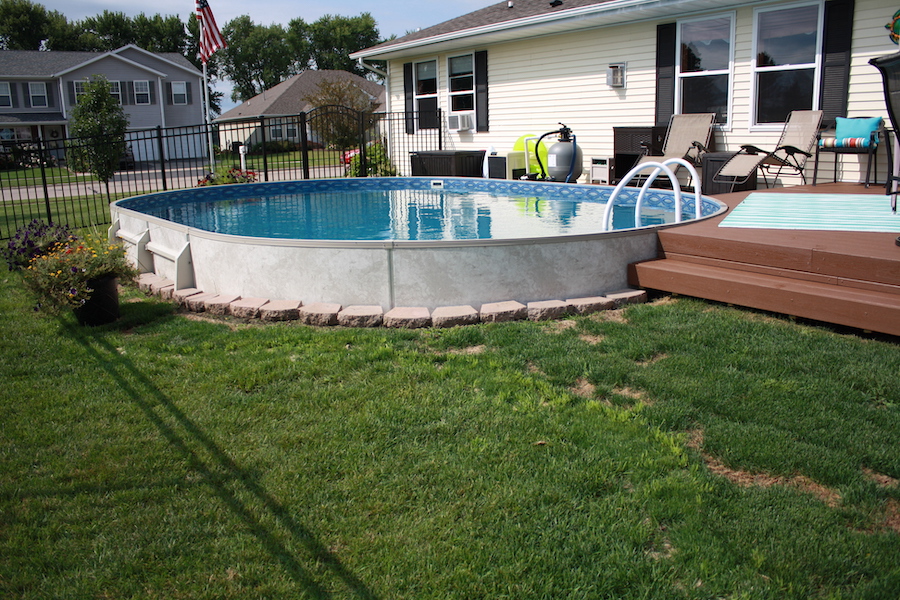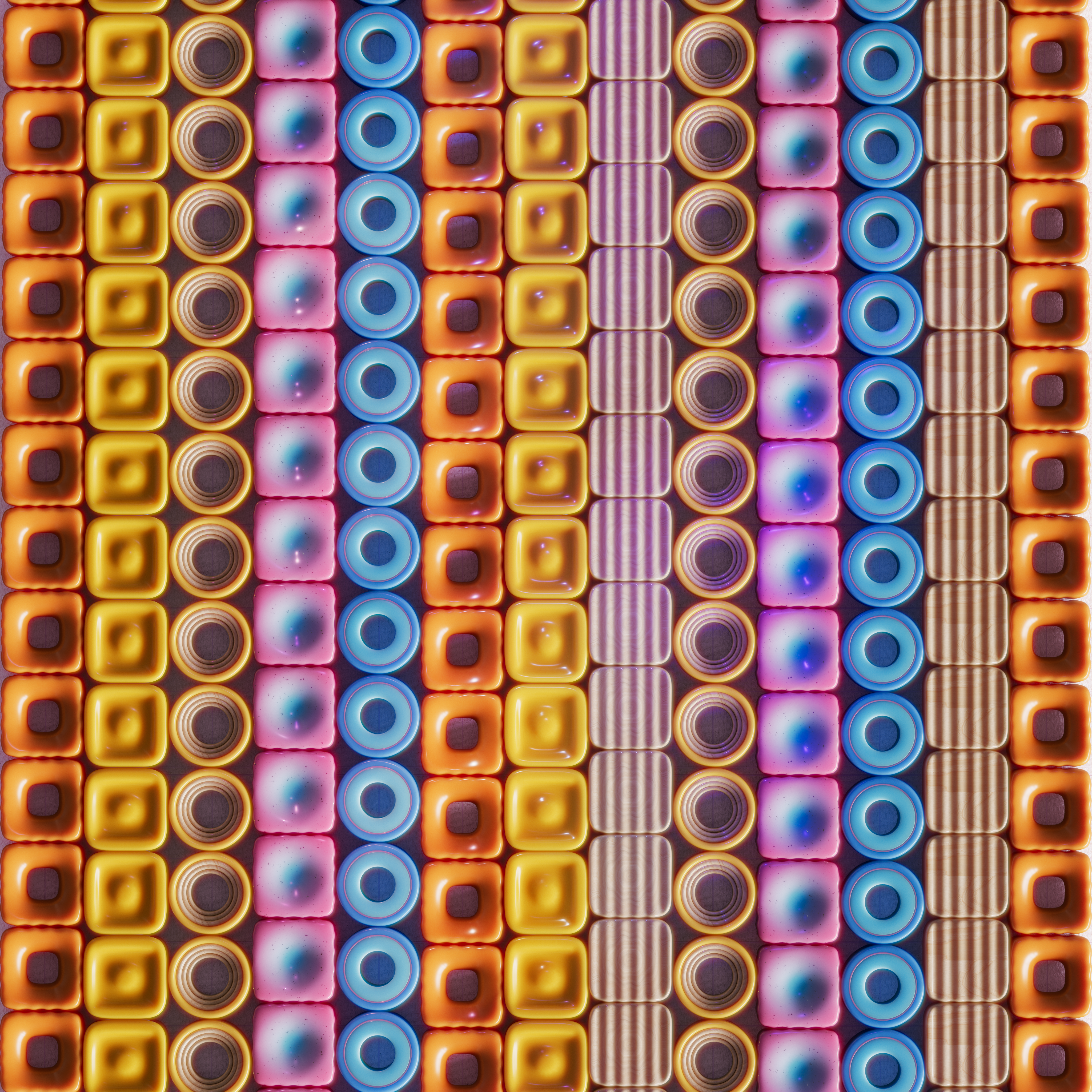When it comes to finding the perfect low maintenance pool, you want something that combines convenience, style, and functionality. Whether you’re a busy professional or just someone who wants to spend more time relaxing in the water than maintaining it, finding the right pool can make all the difference. In this article, we will explore various types of low maintenance pools, from fiberglass to saltwater, and help you discover the best option that suits your needs. Get ready to dive into the world of hassle-free pool ownership!
1. In-Ground Pools
When it comes to in-ground pools, there are three main options to choose from: fiberglass pools, vinyl pools, and concrete pools. Each type has its own advantages and considerations, so it’s important to understand the differences before making a decision.
1.1 Fiberglass Pools
Fiberglass pools are made from a single piece of pre-formed fiberglass material that is installed in the ground. One of the key advantages of fiberglass pools is their low maintenance requirements. The smooth, non-porous surface of a fiberglass pool makes it resistant to algae and bacteria growth, reducing the need for frequent cleaning and chemical treatments. Additionally, the material is less likely to stain or fade over time, which means less maintenance and upkeep for you.
1.2 Vinyl Pools
Vinyl pools are constructed with a flexible vinyl liner that is attached to a frame or supported by the surrounding soil. One of the main benefits of vinyl pools is their relatively low cost compared to other in-ground options. In terms of maintenance, vinyl pool owners will need to regularly check and balance the water chemistry, as well as clean the pool walls to prevent algae growth. However, vinyl liners will eventually need to be replaced, typically every 10-15 years, which is an additional cost to consider.
1.3 Concrete Pools
Concrete pools, also known as gunite or shotcrete pools, offer the most flexibility in terms of design and customization. While concrete pools can be more expensive to install initially, they are known for their durability and longevity. In terms of maintenance, concrete pools will require regular brushing and vacuuming to prevent algae growth and maintain cleanliness. The surface of a concrete pool can also be rougher than other options, which may require more frequent cleaning and maintenance.
2. Above-Ground Pools
If in-ground pools are not an option for you, above-ground pools provide a more affordable and portable alternative. When considering above-ground pools, there are two popular choices: steel pools and aluminum pools.
2.1 Steel Pools
Steel pools are the most common type of above-ground pool. They are constructed with steel panels that are bolted together to create the pool structure. Steel pools are known for their strength and durability, which can be a great option for families with children or pets. In terms of maintenance, steel pools require regular cleaning and water chemistry balancing, similar to in-ground pools.
2.2 Aluminum Pools
Aluminum pools offer a lightweight and corrosion-resistant option for above-ground pool owners. They are constructed with aluminum panels that are easy to assemble and disassemble, making them more portable than steel pools. In terms of maintenance, aluminum pools require regular cleaning and water chemistry balancing, similar to other types of pools.
This image is property of images.pexels.com.
3. Saltwater Pools
Saltwater pools have gained popularity in recent years due to their perceived advantages over traditional chlorine pools. Understanding how saltwater pools work and their advantages and disadvantages can help you make an informed decision.
3.1 How do saltwater pools work?
Saltwater pools use a process called electrolysis to convert salt into chlorine. The pool water passes through a salt cell, which generates chlorine and other sanitizing agents. This creates a constant supply of chlorine, eliminating the need for regular chemical additions.
3.2 Advantages of saltwater pools
One of the main advantages of saltwater pools is their lower chlorine levels compared to traditional chlorine pools. This can result in reduced skin and eye irritation for swimmers. Saltwater pools also have lower maintenance requirements, as the constant chlorine generation reduces the need for frequent chemical additions. The water in saltwater pools also tends to feel smoother and silkier, providing a more enjoyable swimming experience.
3.3 Disadvantages of saltwater pools
Despite their advantages, saltwater pools also have some disadvantages to consider. The initial cost of installing a saltwater system can be higher than a traditional chlorine system. Saltwater pools can also be corrosive to certain pool equipment and materials, requiring additional maintenance and potential replacement costs. Additionally, while saltwater pools reduce the need for regular chemical additions, they still require monitoring and periodic adjustments to ensure proper water balance.
4. Natural Pools
Natural pools, also known as swimming ponds or bio pools, are an eco-friendly and chemical-free alternative to traditional pools. Understanding what natural pools are and their advantages and disadvantages can help you determine if they are the right choice for you.
4.1 What are natural pools?
Natural pools are designed to mimic a natural body of water, such as a pond or lake. They use a combination of plants, filtration systems, and beneficial bacteria to maintain water quality and clarity, eliminating the need for chemicals. The water is filtered through plants and gravel beds, which help to remove impurities and maintain a balanced ecosystem.
4.2 Advantages of natural pools
One of the main advantages of natural pools is their eco-friendliness. By eliminating the need for chemicals, natural pools have a minimal impact on the environment. Natural pools also tend to have a more aesthetically pleasing appearance, blending seamlessly with the surrounding landscape. Additionally, the water in natural pools can be softer and more enjoyable to swim in, as it lacks the harsh chemicals found in traditional pools.
4.3 Disadvantages of natural pools
While natural pools offer many benefits, they also have some disadvantages to consider. Natural pools require a larger footprint compared to traditional pools, as they include separate areas for swimming and filtration. They also require more maintenance compared to traditional pools, as the plants and filtration system need to be properly maintained to ensure optimal water quality. Additionally, natural pools may not be suitable for all climates, as colder temperatures can affect the performance of the filtration system.
This image is property of images.pexels.com.
5. Pool Covers
Pool covers play an important role in maintaining the cleanliness and safety of your pool. Understanding the different types of pool covers and their advantages and disadvantages can help you choose the right option for your needs.
5.1 Automatic pool covers
Automatic pool covers are convenient and easy to use. They can be operated with the push of a button, providing quick and efficient coverage for your pool. Automatic pool covers offer several advantages, including energy savings by reducing heat loss, preventing evaporation, and keeping debris out of the pool. However, they can be more expensive to install initially and may require occasional maintenance or repairs.
5.2 Solid pool covers
Solid pool covers are designed to completely cover the surface of the pool, providing protection from debris and reducing evaporation. They are typically made of PVC or vinyl and offer a durable and long-lasting option. Solid pool covers are generally more affordable than automatic covers and are available in a variety of colors and designs. However, they require manual installation and removal, which can be more time-consuming.
5.3 Mesh pool covers
Mesh pool covers are made of a durable mesh material that allows water to pass through while keeping debris out. They offer a more lightweight and affordable option compared to solid covers. Mesh covers also require manual installation and removal, but they are easier to handle due to their lighter weight. However, they do not provide the same level of heat retention as solid covers and may require more frequent cleaning to remove debris that accumulates on top.
6. Robotic Pool Cleaners
Robotic pool cleaners offer a convenient and efficient way to keep your pool clean. Understanding how they work and their advantages and disadvantages can help you determine if a robotic pool cleaner is the right choice for you.
6.1 How do robotic pool cleaners work?
Robotic pool cleaners operate independently and do not require connection to your pool’s filtration system. They use onboard motors and brushes to navigate the pool surface and vacuum debris, dirt, and algae from the water. Robotic cleaners often come with a built-in filtration system and can automatically climb walls and steps for a thorough cleaning.
6.2 Advantages of robotic pool cleaners
One of the main advantages of robotic pool cleaners is their efficiency and effectiveness. They can thoroughly clean your pool, including the floors, walls, and waterline, without relying on your pool’s filtration system. Robotic cleaners also require less manual effort, as they are self-contained and do not require any additional hoses or connections. In addition, robotic cleaners are generally energy efficient and can reduce the need for chemical treatments by keeping your pool clean.
6.3 Disadvantages of robotic pool cleaners
While robotic pool cleaners offer many benefits, they also have some disadvantages to consider. The initial cost of a robotic cleaner can be higher than other types of pool cleaners. Additionally, robotic cleaners may require periodic maintenance and occasional repairs, which can add to the overall cost over time. Some models may also struggle with certain types of debris, such as large leaves or sticks, requiring manual removal before using the cleaner.
This image is property of images.pexels.com.
7. In-Floor Cleaning Systems
In-floor cleaning systems provide a convenient and efficient way to clean your pool. Understanding how they work and their advantages and disadvantages can help you decide if an in-floor cleaning system is right for you.
7.1 How do in-floor cleaning systems work?
In-floor cleaning systems are installed beneath the pool surface and consist of a network of nozzles that are strategically placed to create water circulation. The nozzles release high-pressure streams of water that push debris towards the main drain, where it can be filtered out. The system operates automatically and ensures that the entire pool surface is cleaned.
7.2 Advantages of in-floor cleaning systems
One of the main advantages of in-floor cleaning systems is their ability to provide continuous cleaning without the need for manual labor or additional equipment. They help to distribute chemicals and heat throughout the pool, maintaining consistent water quality and temperature. In-floor cleaning systems also reduce the need for manual vacuuming or brushing, saving you time and effort.
7.3 Disadvantages of in-floor cleaning systems
In-floor cleaning systems can be more expensive to install initially compared to other cleaning options. Additionally, they require adequate water pressure and flow rate to work effectively, which may require modifications to your pool system. In-floor systems also require periodic maintenance and potential repair costs. It’s important to note that in-floor cleaning systems may not be suitable for all pool sizes or configurations, so it’s important to consult with a professional before making a decision.
8. Variable Speed Pool Pumps
Variable speed pool pumps offer energy-efficient options for circulating and filtering pool water. Understanding how they work and their advantages and disadvantages can help you determine if a variable speed pool pump is the right choice for you.
8.1 How do variable speed pool pumps work?
Variable speed pool pumps allow you to adjust the speed at which water is circulated and filtered in your pool. Unlike traditional single-speed pumps, variable speed pumps can be set to operate at different speeds and flow rates to meet the specific needs of your pool. This flexibility allows for energy savings, as the pump can be run at a lower speed when less water circulation is required.
8.2 Advantages of variable speed pool pumps
One of the main advantages of variable speed pool pumps is their energy efficiency. By operating the pump at lower speeds, you can reduce energy consumption and potentially save on utility costs. Variable speed pumps also tend to run more quietly compared to traditional single-speed pumps. Additionally, the ability to adjust the pump speed can help prolong the lifespan of your pool equipment, as it reduces wear and tear.
8.3 Disadvantages of variable speed pool pumps
While variable speed pool pumps offer many benefits, they also have some disadvantages to consider. The initial cost of a variable speed pump can be higher than a traditional single-speed pump. Additionally, variable speed pumps may require more regular maintenance and occasional repairs. It’s also important to note that variable speed pumps require programming and adjustment to find the optimal settings for your pool, which may require some trial and error.
9. Energy-Efficient Pool Filtration Systems
Energy-efficient pool filtration systems can help reduce energy consumption and costs associated with maintaining your pool. Understanding how they work and their advantages and disadvantages can help you make an informed decision.
9.1 How do energy-efficient pool filtration systems work?
Energy-efficient pool filtration systems utilize advanced filtration technologies, such as variable speed pumps, high-efficiency filters, and smart controls, to reduce energy consumption and improve system performance. These systems can operate at lower speeds or use less water while maintaining the same level of filtration, resulting in energy savings.
9.2 Advantages of energy-efficient pool filtration systems
One of the main advantages of energy-efficient pool filtration systems is their reduced energy consumption and lower operating costs. By using high-efficiency components, such as variable speed pumps and efficient filters, these systems can help you save on utility bills. Energy-efficient filtration systems also tend to provide improved water clarity and quality, as the advanced filtration technologies are more effective at removing impurities.
9.3 Disadvantages of energy-efficient pool filtration systems
Although energy-efficient pool filtration systems offer many benefits, they can be more expensive to install initially compared to traditional systems. Additionally, these systems may require more regular maintenance and occasional repairs, which can add to the overall cost over time. It’s also important to consider the complexity of these systems, as they may require additional programming and adjustment to optimize their performance.
10. Pool Automation Systems
Pool automation systems provide convenient and efficient control over various pool functions, such as temperature, lighting, and water features. Understanding how they work and their advantages and disadvantages can help you decide if a pool automation system is right for you.
10.1 How do pool automation systems work?
Pool automation systems use a combination of sensors, timers, controllers, and actuators to provide centralized control over various pool functions. These systems can be operated remotely through a smartphone app or a control panel installed near the pool. Pool automation systems allow you to adjust and monitor parameters such as water temperature, lighting, chemical levels, and pool cleaning schedules.
10.2 Advantages of pool automation systems
One of the main advantages of pool automation systems is the convenience they offer. With a pool automation system, you can easily control and monitor your pool functions from anywhere, providing flexibility and peace of mind. These systems also help optimize energy usage by allowing you to schedule and adjust pool functions based on your specific needs. Pool automation systems can also enhance safety by providing automated controls for pool covers, alarms, and lighting.
10.3 Disadvantages of pool automation systems
While pool automation systems offer many benefits, they can be more expensive to install initially compared to traditional manual controls. Additionally, these systems may require periodic maintenance and potential software updates, which can add to the overall costs. It’s also important to consider the learning curve associated with operating the system, as you may need to familiarize yourself with the functions and settings.
In conclusion, choosing the best low maintenance pool depends on your specific preferences, budget, and lifestyle. Fiberglass pools, vinyl pools, and concrete pools are popular options for in-ground pools, each with its own advantages and considerations. Above-ground pools, including steel and aluminum pools, provide a more affordable and portable alternative. Saltwater pools offer a low maintenance option with reduced chlorine levels and lower chemical requirements. Natural pools are eco-friendly and chemical-free, but require more maintenance and may not be suitable for all climates. Pool covers, robotic pool cleaners, in-floor cleaning systems, variable speed pool pumps, energy-efficient pool filtration systems, and pool automation systems all offer ways to reduce maintenance and improve efficiency. Consider the advantages and disadvantages of each option to find the best low maintenance pool that meets your needs and preferences.








